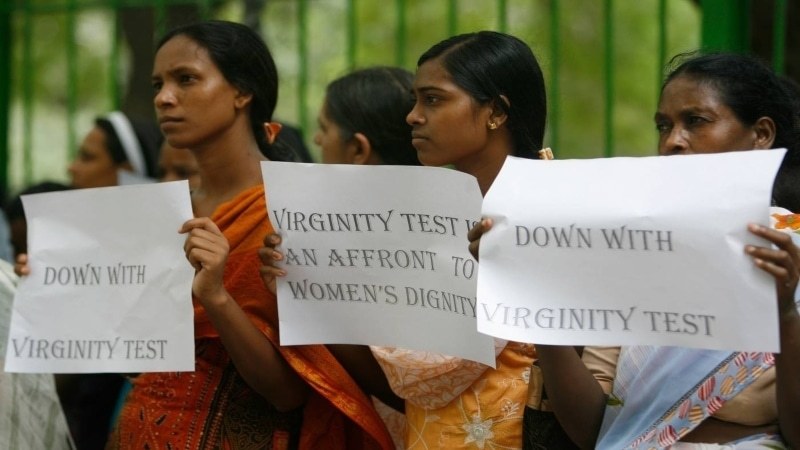South Asian women face a fundamental challenge of sexual inequality all their life. Home to 860 million women or nearly 22.6 percent of the global female population, rape has been a primary act of sexual violence committed against them. Proving the crime is also a challenge due to the complex legal structure in most of these countries.
In countries like India, Nepal and Sri Lanka, physical vaginal tests are part of the legal procedure to determine whether a female has been raped, according to a new report. Many courts refer to the test report in judgment, despite it having no scientific backing.
The report says, despite strong legislation among south Asian countries to reduce child sexual abuse, Nepal, Bhutan and Maldives’s majority of rape cases reported are of rape of children.
Public outcry
The growing failure of the criminal justice system across the region led to growing anger among women. In India, activists, students and the normal public took to the streets when police and the government tried to deny the gang rape of 19-year old Dalit women in September 2020.
Similarly, Nepal saw an increase in the number of rape cases since 2017. In Bangladesh, a video of brutal gang rape shared on social media widely, this led to huge demonstrations of their dissatisfaction with the criminal justice system.
In Bhutan and Maldives, though the number of reported cases are low in number, recent incidents of high-profile people involved in rape cases generated wide media coverage and have led to public outrage among these countries.
Pandemic
Historically, violence against women and young girls during pandemic, epidemic and emergency events tend to increase. During the present COVID-19 pandemic, the rise in sexual violence may not be captured through official government records due to restriction of staying in homes, stigma and high chance of presence of perpetrator in close proximity led to a reduction in reporting.
Marital Rape
Globally, 104 countries recognise marital rape as a criminal offence. In the South Asian region, Bhutan and Nepal consider marital rape as a criminal offence in all circumstances. Voices are growing in recent times in other countries to bring a strong law.
In Bangladesh, 27.3 percent of cases reported are related to marital relations. However, in all other countries, the ratio of rapes recorded related to marital relations is under 10 percent. The Maldives reported only 4.4 percent of all rape cases as marital relations.
However, the figures presented in the report may not be a true reflection of what’s happening in society. Attitudes and perceptions of men and women, marriage stigma, and acceptance of women’s role as a subordinate in marriage by both genders act as main reasons to not understanding the true picture in society.

